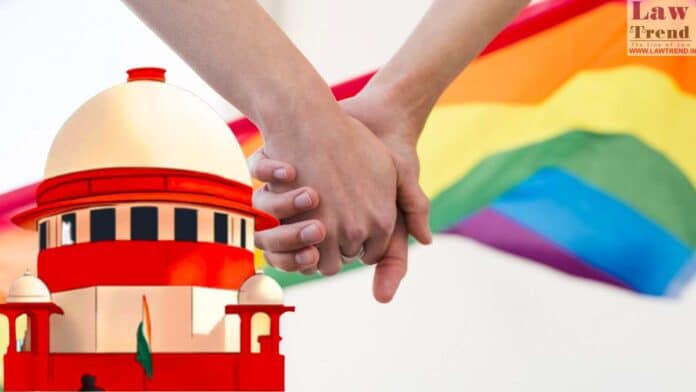On Thursday, the Supreme Court will hear petitions seeking recognition of same-sex marriages. Meanwhile, this fascinating debate took place in court on Wednesday.
The government stated unequivocally that the issue of same-sex marriages should not be heard by the Supreme Court and should instead be decided by Parliament.
The government’s Solicitor General, Tushar Mehta, said that same-sex marriage recognition is a complicated issue. If this is approved, the Special Marriage Act will be rendered obsolete.
He also questioned the definition of LGBTQIA ++, stating that we can discuss LGBTQIA among these, but how will the definition of ++ be determined. The Solicitor General also stated that changing the definition of marriage would necessitate the amendment of 160 laws.
He questioned whether, in such a situation, the Supreme Court would amend 160 laws by transforming itself into a “Super Parliament.” He also mentioned how difficult it is to define sexual orientation. According to Tushar Mehta, there are 72 different groups based on sexual interest.
Tushar Mehta stated that, in addition to the Special Marriage Act, there are numerous other laws that govern marriage issues. There are 160 such laws in total, with rules governing the affairs of men and women. ‘Will the Supreme Court amend these laws by becoming a super parliament?’ he asked. Women’s and men’s issues have been addressed in all of these rules. It is preferable that Parliament make a decision on such a complex issue. He questioned whether it was appropriate for the Supreme Court to rule on same-sex marriages without first considering the societal implications.
According to the Solicitor General, all religions in the country recognise only marriage between a man and a woman. This is also the basis for the Special Marriage Act. If same-sex marriage is legalised, it will be meaningless. He stated unequivocally that the Supreme Court should avoid this issue. However, during the hearing, the Chief Justice stated unequivocally that the court will hear the matter.
The government’s question on gay marriage: Will the Supreme Court amend 160 laws by becoming a super parliament?
On Thursday, the Supreme Court will hear petitions seeking recognition of same-sex marriages. Meanwhile, this fascinating debate took place in court on Wednesday. The government stated unequivocally that the issue of same-sex marriages should not be heard by the Supreme Court and should instead be decided by Parliament. The government’s Solicitor General, Tushar Mehta, testified that same-sex marriage recognition is a complicated issue. If this is approved, the Special Marriage Act will be rendered obsolete.
He also questioned the definition of LGBTQIA ++, stating that we can discuss LGBTQIA among these, but how will the definition of ++ be determined. The Solicitor General also stated that changing the definition of marriage would necessitate the amendment of 160 laws. He questioned whether, in such a situation, the Supreme Court would amend 160 laws by transforming itself into a “Super Parliament.” He also mentioned how difficult it is to define sexual orientation. According to Tushar Mehta, there are 72 different groups based on sexual interest.
Tushar Mehta stated that, in addition to the Special Marriage Act, there are numerous other laws that govern marriage issues. There are 160 such laws in total, with rules governing the affairs of men and women. ‘Will the Supreme Court amend these laws by becoming a super parliament?’ he asked. Women’s and men’s issues have been addressed in all of these rules. It is preferable that Parliament make a decision on such a complex issue. He questioned whether it was appropriate for the Supreme Court to rule on same-sex marriages without first considering the societal implications.
According to the Solicitor General, all religions in the country recognise only marriage between a man and a woman. This is also the basis for the Special Marriage Act. If same-sex marriage is legalised, it will be meaningless. He stated unequivocally that the Supreme Court should avoid this issue. However, during the hearing, the Chief Justice stated unequivocally that the court will hear the matter.




